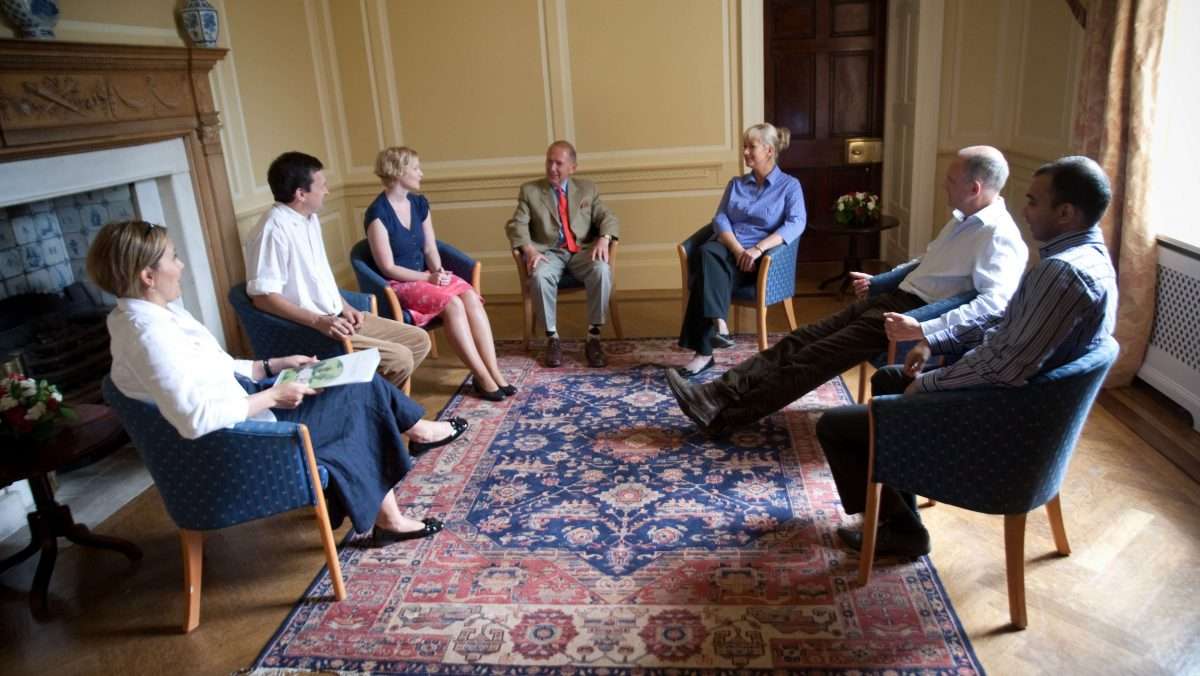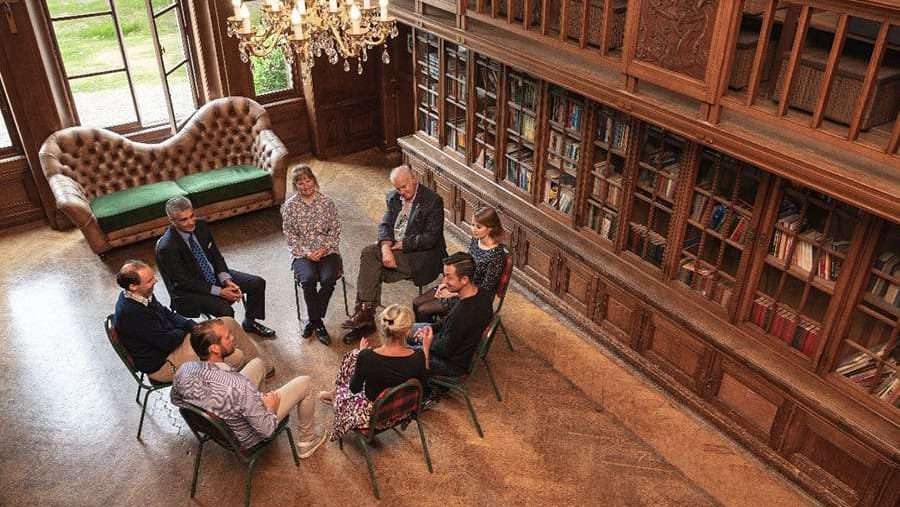
World Class Addiction Treatment
What is Group Therapy for Addiction?
Group therapy is a form of psychotherapy where a small group of people meet to discuss their feelings and experiences. Like one-to-one therapy, group sessions are led by a trained therapist who facilitates the process and offers therapeutic interventions.
Understandably, the idea of sharing personal thoughts and feelings within a group setting can at first feel pretty daunting. However, this collaborative approach often utilised in mental health clinics and rehab centres, allows participants to benefit from the collective insights and mutual support of the group, something which cannot be achieved by individual therapy alone.
What are the Benefits of Group Therapy?
- Attending group therapy activities allows those in treatment to interact with other people going through similar experiences, reducing any feelings of stigma, shame, and isolation.
- Groups operate like mini versions of the wider world, creating opportunities for other members to develop and practise their interpersonal and social skills, some of which may have deteriorated as a result of their addiction.
- Group members may be at different stages of recovery, which means that newer participants can learn from others’ experiences. Meeting people further ahead in their recovery journey can be inspiring, and increase a patient’s hope that things will eventually get better.
- Offering help to other group members can boost patients’ self-confidence and encourage a sense of purpose.
- Being part of a group creates a feeling of belonging and solidarity, helping to boost self-esteem and aid recovery.
How Does Group Therapy Work at Castle Craig?
Group therapy takes place every weekday morning at Castle Craig. A group of 8-10 patients meet, together with one of our specialist addiction therapists, whose role is to facilitate and guide the group.
Sitting in a circle, the sessions start with a check-in, with each patient telling the group how they are currently feeling. Group members then have a chance to share any work they have been assigned by their therapist, such as their life story, or to discuss any issues they are currently struggling with.
The group might consider how addiction has impacted their lives and relationships, or explore any factors which might be blocking recovery. By listening to the insights and views of the rest of the group, patients often develop a deeper understanding of their addiction and gain new perspectives.
While the group talks, the facilitating therapist listens and notes any pertinent issues, reflecting these back to the group to consider and explore together.

Strict Confidentiality
The success of group psychotherapy depends on the willingness of group members to be open and honest with each other. As such, confidentiality is paramount, and group members are expected to respect each other’s privacy, and avoid repeating or sharing information outside of the group. Attendees are reminded about the need for confidentiality at the start of each session.

How is Group Therapy Effective?
Group therapy is an integral part of our rehab programme at Castle Craig, with recent research again confirming it as an effective treatment modality for people with addictions.
Group treatment sessions help patients to:
- Explore any self-defeating behaviours and negative attitudes.
- Identify problems and situations which could lead to relapse.
- Learn from the experiences and opinions of others.
- Make decisions that will influence their ongoing recovery.
- Embrace the process of change through support and challenge from peers.
- Prepare for long-term involvement in support groups such as Alcoholics Anonymous (AA), Narcotics Anonymous (NA), and Gamblers Anonymous (GA).
Specialist Group Interventions
We regularly run tailored sessions for particular groups of patients. These include specific groups for patients affected by eating disorders and gambling, a women’s group, a relapse prevention group, a grief group and a trauma group.
Most of our therapy groups are mixed-gender, but on Thursdays, we hold gender-specific groups, as some of our patients find this beneficial.
- Eating disorders group therapy
- Relapse prevention group
- Women’s group therapy
- Relationship therapy
- Cross Addiction

Download Our Brochure
Is Group Therapy Different from Support Groups?
Both group therapy and support groups such as Alcoholics Anonymous and Narcotics Anonymous provide the opportunity for people experiencing similar challenges to meet together and share experiences. In this way, both can be invaluable sources of support for people seeking recovery.
However, there are also some key differences. Group therapy sessions are usually led by a qualified therapist, with a limit on numbers, and attendees are expected to commit to regular attendance for a set period. Meanwhile, support groups tend to be open to whoever wants to attend, and allow a more flexible, drop-in type of attendance pattern without any fixed expectations.

Seek Help Today
Useful resources
Psychotherapy: Understanding group therapy (apa.org)
Group Therapy – Counselling Directory (counselling-directory.org.uk)
-
References
- Lo Coco G, Graffeo MT, & Albano G. Implementing group therapy for adults with substance use disorders: What research-based evidence? Group Dynamics: Theory, Research, and Practice. 2024. Advance online publication.
- American Psychological Association. Psychotherapy: Understanding group therapy.
- Nicholls K, Group Therapy.
How Can Castle Craig Help?
Who will I speak to when I call Castle Craig?
When you call you will reach our Help Centre team who will give you all the information you need to help you decide whether to choose treatment at Castle Craig. If you decide that you would like to have a free screening assessment you will be asked a series of questions to build up a picture of your medical and drug use history as well as any mental health issues you are facing. If you decide you want to proceed with treatment you will be put in touch with our admissions case managers who will guide you through the admissions process.
How long is the rehab programme?
Residential rehab treatment starts at 4 weeks and can go up to 12+ weeks. Research shows us that the longer you stay in rehab and are part of the residential therapy programme, the longer the likelihood of continued abstinence and stable recovery.
How do I pay for rehab?
One concern we sometimes hear from people is how they will fund their rehab treatment. You can pay for treatment at Castle Craig privately, or through medical insurance, and some people receive funding through the NHS. The cost of rehab varies depending on what kind of accommodation you choose.
What happens at the end of my treatment?
Castle Craig thoroughly prepares patients before departure by creating a personalised continuing care plan which is formulated following discussions with the medical and therapeutic team. We offer an online aftercare programme which runs for 24 weeks after leaving treatment, in order to ensure a smooth transition back into your everyday life. Patients leaving treatment automatically join our Recovery Club where they can stay connected via our annual reunion, events, online workshops and recovery newsletters.